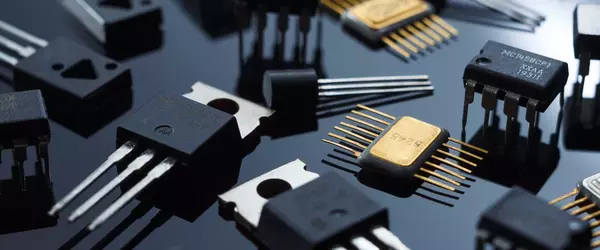A solid-state thermal transistor is a device that can control the flow of heat through a material in a way that is similar to how an electronic transistor controls the flow of electricity. Recently, researchers have demonstrated the first solid-state thermal transistor, which could pave the way for new types of thermal management systems in electronics.
A new era in thermal management technology has begun with the development of an effective, stable solid-state electrochemical transistor.
A large amount of heat is produced as waste in modern electronics during usage; this is why devices such as laptops and mobile phones become warm during use and require cooling solutions. The concept of managing this heat with electricity has been tested in the last decade, leading to the development of electrochemical thermal transistors – devices that can control heat flow with electrical signals. Liquid-state thermal transistors are currently in use, but they have significant limitations, most notably that any leakage causes the device to stop working.
Our findings show that solid-state electrochemical thermal transistors have the potential to be just as effective as liquid-state electrochemical thermal transistors, with none of their limitations.
Professor Hiromichi Ohta
Hokkaido University’s Research Institute for Electronic Science, led by Professor Hiromichi Ohta, has developed the first solid-state electrochemical thermal transistor. Their invention, which was published in the journal Advanced Functional Materials, is far more stable and effective than current liquid-state thermal transistors.
“A thermal transistor is made up of two materials: the active material and the switching material,” Ohta says. “The active material has changeable thermal conductivity, and the switching material is used to control the thermal conductivity of the active material.”
The team constructed their thermal transistor on a yttrium oxide-stabilized zirconium oxide base, which also functioned as the switching material, and used strontium cobalt oxide as the active material. Platinum electrodes were used to supply the power required to control the transistor.

In the “on” state, the thermal conductivity of the active material was comparable to that of some liquid-state thermal transistors. Thermal conductivity of the active material was four times higher in the “on” state than in the “off” state in general. Further, the transistor was stable over 10 use cycles, better than some current liquid-state thermal transistors. This behavior was tested across more than 20 separately fabricated thermal transistors, ensuring the results were reproducible. The only disadvantage was that the operating temperature was around 300°C.
“Our findings show that solid-state electrochemical thermal transistors have the potential to be just as effective as liquid-state electrochemical thermal transistors, with none of their limitations,” concludes Ohta. “The main hurdle to developing practical thermal transistors is the high resistance of the switching material, and hence a high operating temperature. This will be the focus of our future research.”
The researchers believe that this new solid-state thermal transistor could be used in a wide range of applications, from electronic cooling systems to energy harvesting devices. It could also lead to the development of new types of thermal sensors and detectors.
Overall, the demonstration of this solid-state thermal transistor represents an important milestone in the development of new types of thermal management technologies, which could have significant implications for a wide range of industries and applications.
















